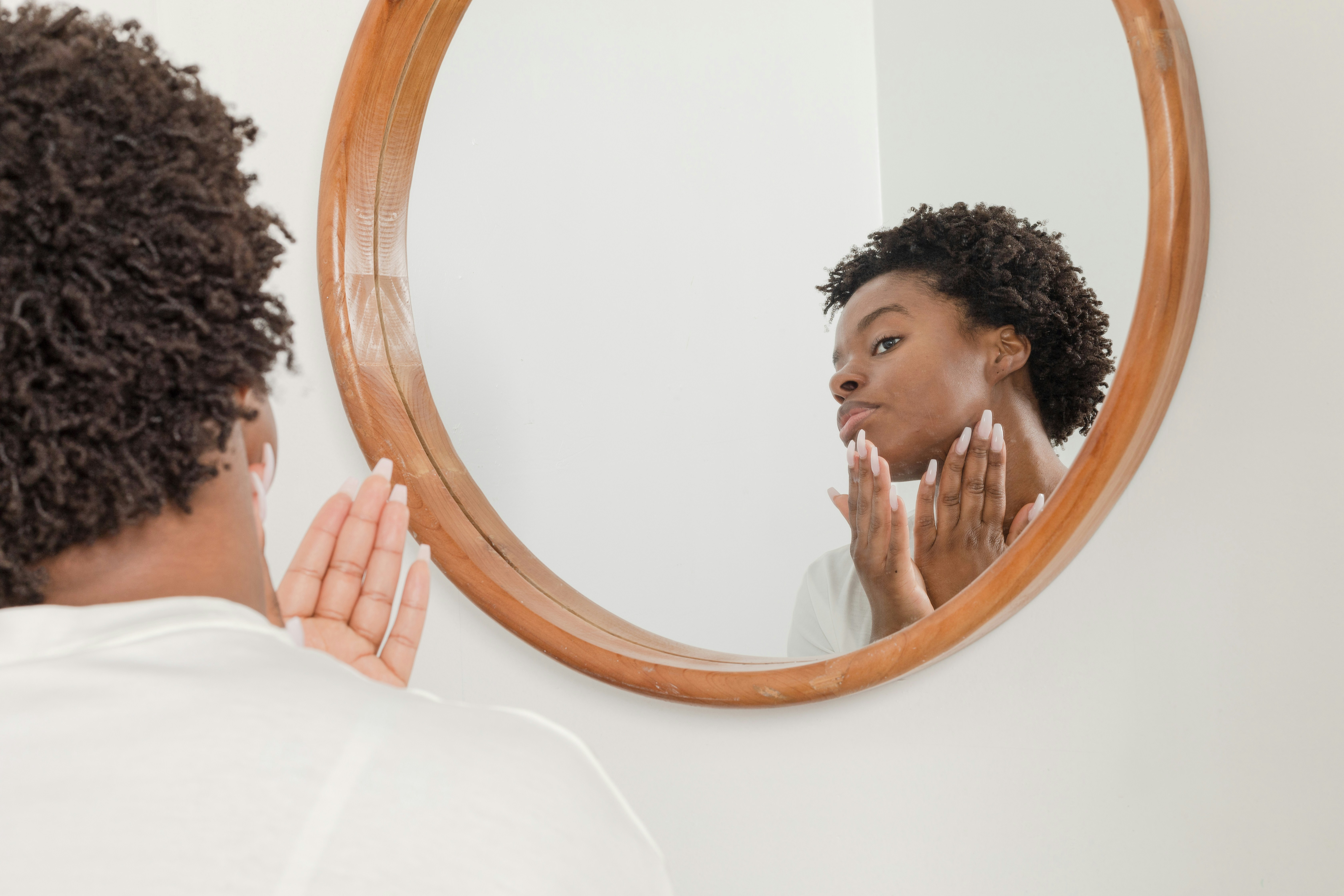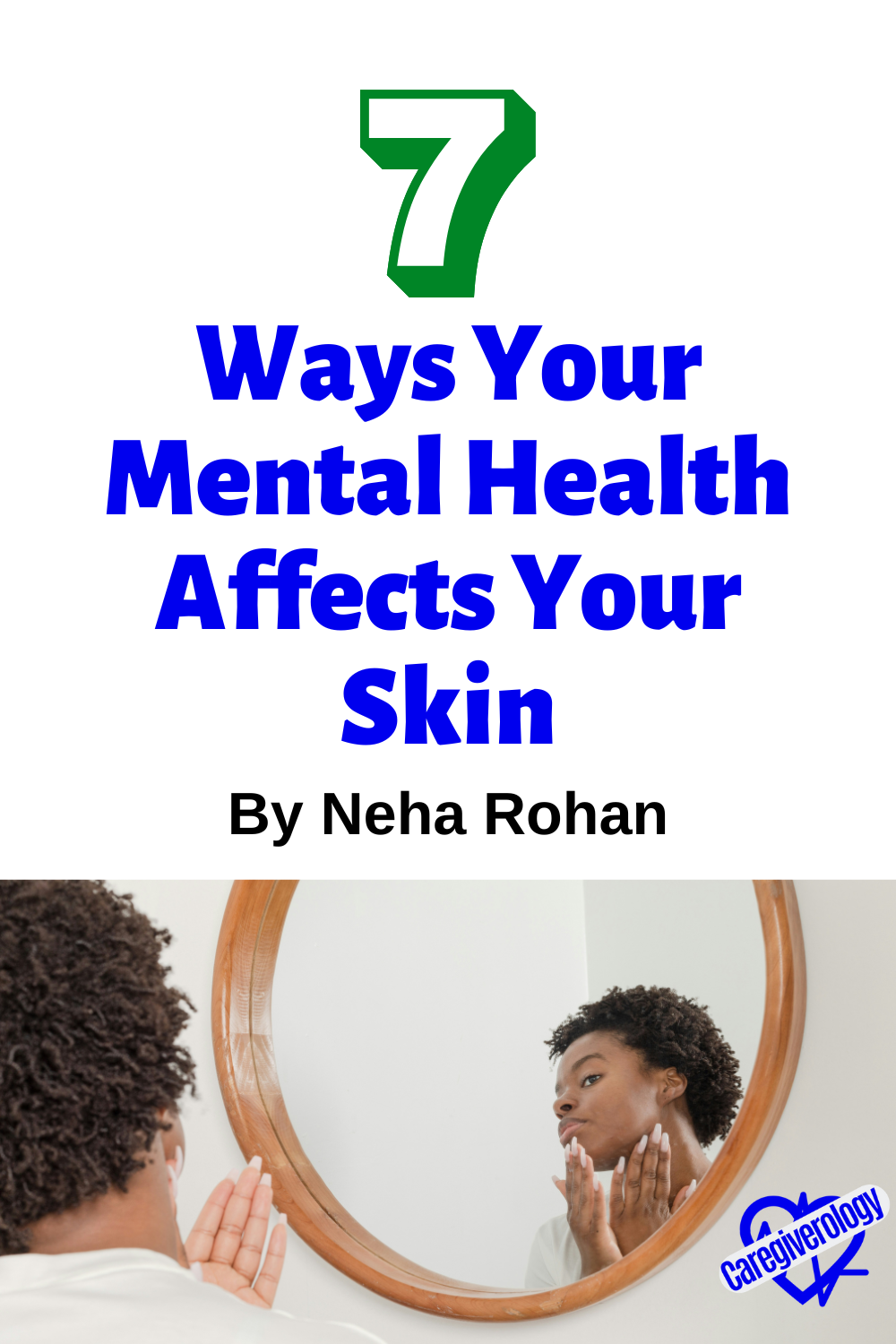7 Ways Your Mental Health Affects Your Skin

The intricate connection between mental health and skin health is a subject of increasing interest within the medical community. Psychological well-being is now recognized as a significant factor influencing various skin conditions. Stress, anxiety, and other emotional states can manifest physically on our skin, the body's largest organ, which often acts as a mirror reflecting our internal emotional and mental states. This growing awareness is reshaping the field of dermatology, where professionals are integrating more holistic approaches to treatment, considering not only the physical symptoms but also the psychological underpinnings of skin conditions.
1. Happiness and Skin Radiance
The positive impact of happiness and mental well-being on skin health is significant. A stable and joyful mental state can enhance skin radiance and vitality. When we're happy, our body releases endorphins and other positive hormones that can improve blood flow and skin health, giving a natural glow to the skin.
Conversely, chronic stress and unhappiness can lead to dull, tired-looking skin. Engaging in activities that promote happiness and reduce stress can have visible benefits for your skin. Whether it's pursuing a hobby, spending time in nature, or practicing mindfulness, finding joy in daily life can reflect on your skin, enhancing its health and appearance.
2. Stress and Skin Conditions
Stress is a common factor that can exacerbate or even trigger skin issues. When we're stressed, our body releases cortisol, a hormone that can increase oil production in our skin glands, leading to acne. Chronic stress can also weaken the immune system, making the skin more susceptible to infections and diseases, and can aggravate conditions like psoriasis, eczema, and rosacea. The connection between stress and skin health is a focal point in the evolving field of dermatology.
In line with the dermatology trends 2024 has been witnessing, there is a notable shift towards leveraging cutting-edge technologies and embracing innovative treatment modalities that often consider the patient's mental well-being alongside their physical symptoms. Dermatologists are now exploring holistic approaches that address stress management as part of the treatment plan for skin conditions, recognizing the critical role that mental health plays in achieving optimal skin health.
3. Anxiety and Skin Sensitivity
Anxiety can significantly impact the skin, often heightening its sensitivity and exacerbating conditions like rosacea, which can cause redness, burning, and irritation. Similarly, anxiety can intensify the symptoms of contact dermatitis, leading to more pronounced skin reactions to irritants or allergens. Understanding and managing anxiety can, therefore, be a crucial step in alleviating these skin conditions.
- Recognize Triggers: Identifying what exacerbates your anxiety and, by extension, your skin sensitivity can help in managing these conditions.
- Stress Management Techniques: Engaging in stress reduction practices like mindfulness, meditation, or yoga can alleviate anxiety levels.
- Professional Support: Consulting with a mental health professional can provide strategies to manage anxiety more effectively.
- Consistent Skincare Routine: Establishing a gentle skincare routine can help manage skin sensitivity associated with anxiety.
4. Depression and Skin Care Neglect
Depression can lead to a lack of motivation or interest in maintaining regular skincare routines, which is vital for skin health. Neglecting skincare can exacerbate existing conditions, lead to outbreaks, or result in new skin issues. The psychological state of a person can directly influence their willingness and energy to engage in self-care practices, including those for their skin.
Understanding the link between depression and skincare neglect is essential. Encouraging individuals to seek treatment for depression is a crucial step. As mental health improves, the motivation for self-care, including skin care, often returns. Dermatologists and mental health professionals can work together to provide comprehensive care that addresses both the emotional and physical aspects of skin health, acknowledging that improving a patient's mental state can also lead to better skin health outcomes.

5. Sleep Disturbances and Skin Aging
Lack of quality sleep, often a symptom of various mental health issues, can significantly impact the skin, accelerating the aging process. Sleep is a critical time for the body to repair and regenerate, and without adequate rest, the skin misses out on this essential rejuvenation. It can result in visible signs of aging, such as wrinkles, loss of elasticity, and dullness. Mental health conditions like anxiety and depression can disrupt sleep patterns, creating a cycle that both affects the skin and exacerbates the mental condition.
- Prioritize Sleep Hygiene: Establish a regular bedtime routine and create a restful environment to improve sleep quality.
- Limit Screen Time: Reduce exposure to screens before bedtime to enhance sleep quality and potentially benefit skin health.
- Consider Professional Help: If sleep issues persist, seeking advice from a healthcare provider can be crucial.
- Mind-Body Techniques: Practices like meditation or gentle yoga before bed can promote better sleep, positively impacting skin health.
6. Psychological Conditions and Compulsive Skin Picking
Compulsive skin picking, a behavior sometimes linked to mental health conditions like anxiety and OCD, can lead to noticeable skin damage. This repetitive action can create wounds, scars, or infections, exacerbating any existing skin conditions. Recognizing and addressing this behavior is essential in breaking the cycle and promoting healthier skin.
Therapeutic strategies are crucial in managing compulsive skin-picking behavior. Cognitive-behavioral therapy (CBT) and habit reversal training are among the effective approaches to reduce the incidence of skin picking. By tackling the psychological roots of this behavior, individuals can see a significant improvement in their skin's health and overall appearance.
7. Impact of Emotional Stress on Hormonal Balance and Skin Health
Emotional stress doesn't just feel bad—it can directly affect your body's hormonal balance, leading to a cascade of skin problems. When we're under stress, our bodies increase the production of hormones like cortisol, which can stimulate the skin's oil glands, leading to acne flare-ups. Moreover, stress can exacerbate conditions like eczema, rosacea, and psoriasis, making the skin more reactive and sensitive.
- Holistic Stress Management: Incorporating stress management techniques such as mindfulness, deep breathing exercises, or yoga can help regulate the body's stress response, benefiting your skin's health.
- Professional Support: Sometimes, managing stress requires professional help. Therapists or counselors can offer strategies to cope with stress more effectively.
- Regular Exercise: Physical activity can reduce stress and promote hormonal balance, positively impacting skin health.
- Balanced Diet: Consuming a balanced diet rich in antioxidants and anti-inflammatory foods can help the body manage the effects of stress on the skin.
Conclusion
The intricate link between mental health and skin condition underscores the importance of a holistic approach to skincare and health in general. From sleep and stress management to addressing compulsive behaviors and nurturing happiness, the state of our mind plays a pivotal role in the health and appearance of our skin. Understanding these connections can empower individuals to take proactive steps in caring for both their mental and skin health, leading to overall well-being and improved quality of life. By recognizing the signs and seeking appropriate care, individuals can enjoy the dual benefits of mental wellness and radiant, healthy skin.
Thank you Neha Rohan for contributing this article.
Mental Health and Support Articles
From 7 Ways Your Mental Health Affects Your Skin to Home
Recent Articles
-
Common Truck Crash Injuries and Legal Remedies - Caregiverology
Jul 19, 25 10:49 AM
Known for its sun-drenched beaches, vibrant arts scene, and bustling maritime industry, Fort Lauderdale is a city that sees heavy traffic both on its roads and at its busy port. Unfortunately, with th… -
Why Expert Legal Help Matters After Serious Injury - Caregiverology
Jul 19, 25 10:35 AM
In Houston, over 67,600 car crashes occurred in 2023, resulting in 290 fatalities and 1,612 serious injuries. That’s roughly 185 accidents every day. -
How Life Care Planners Support Injury Recovery - Caregiverology
Jul 19, 25 10:18 AM
In Los Angeles, life care planners play a vital role in supporting injury recovery, especially for individuals facing catastrophic injuries such as traumatic brain injuries or spinal cord damage.





New! Comments
Have something to say about what you just read? Leave a comment in the box below.